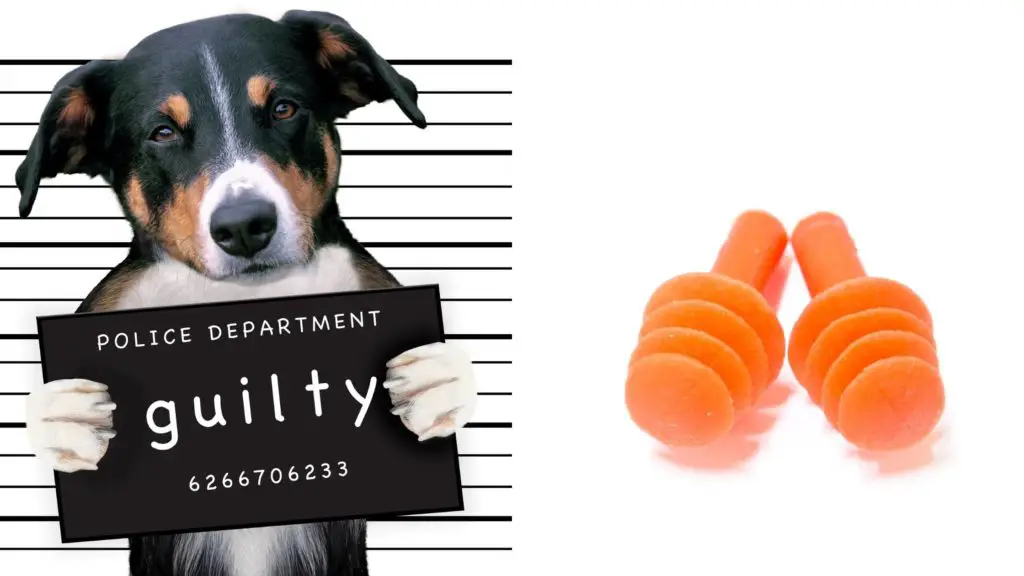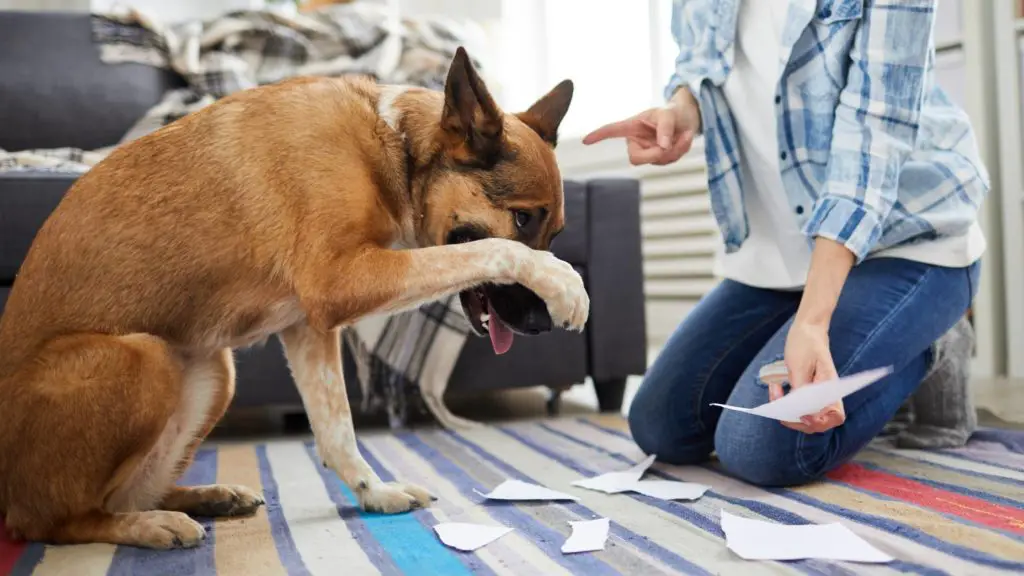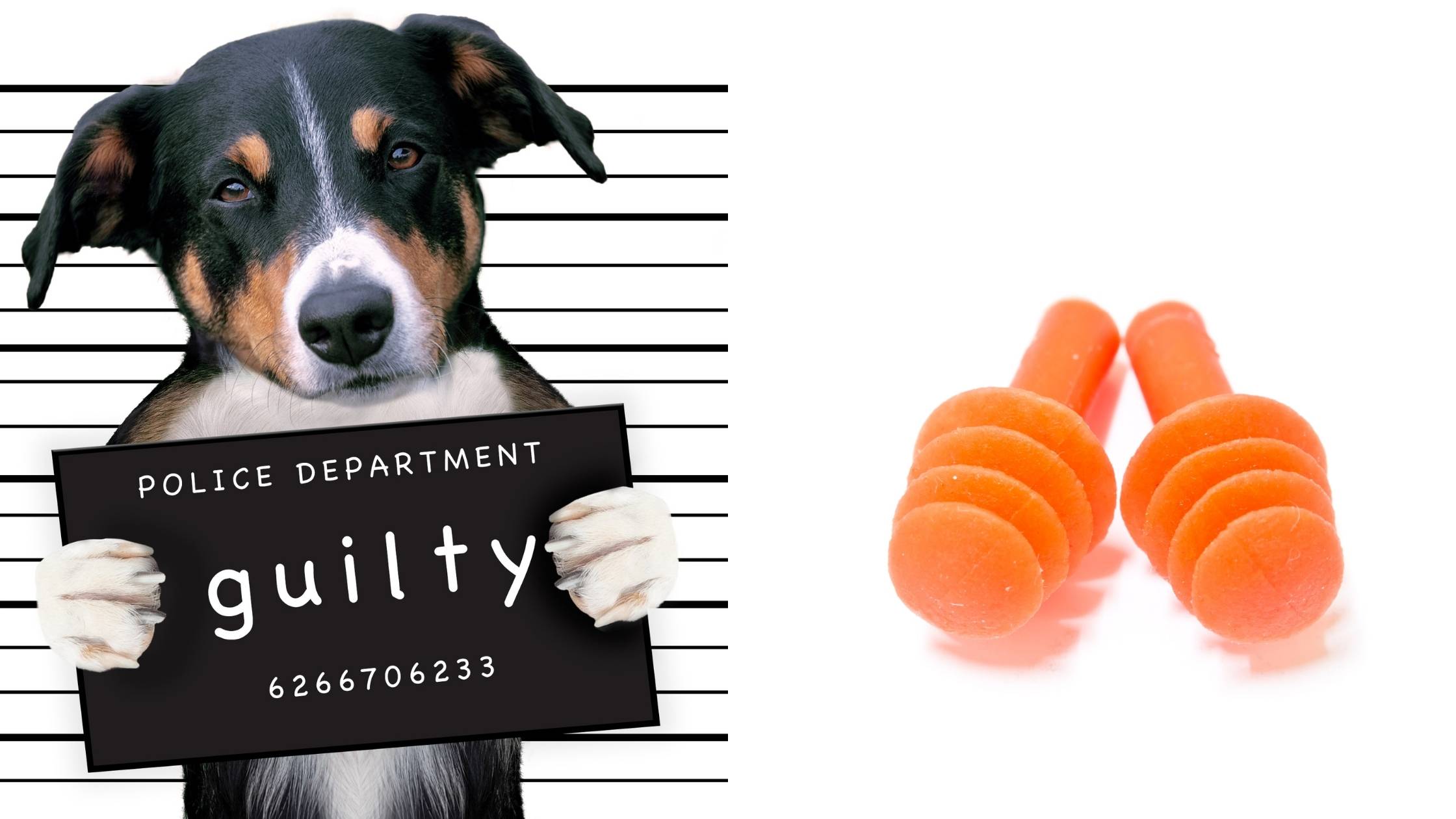Last Updated on 11/17/2021 by Veronica Jones
All pet owners know that canines want things that they can’t have, from your food to household items that are not designed for pet consumption.
So your dog ate foam earplugs that have been left on the bedside table and now you don’t know what to do?
Don’t panic.
We explain the actions to take if your dog eats foam earplugs and whether they will cause your furry friend any harm.
What to do if your dog eats an ear plug?
1. Firstly, don’t panic. Your beloved pet will need you to stay calm so you can make rational decisions. If you feel yourself start to panic, take a few deep breaths before continuing.
2. Next, check to see if the ear foam plugs are still in your dog’s mouth. If they are, carefully remove them. Don’t poke your fingers around your furry friend’s mouth trying to find them though as this could push the ear plugs further into your dog’s mouth and down its throat, causing more harm.
3. If you can’t see the ear foams, make sure your dog is breathing ok. If your pooch starts behaving erratically and coughing, he may be choking. Other signs of breathing difficulties include breathing harder or faster than normal, pale or blue gums or gasping for breath. If your dog is showing signs of choking and you can’t see the earplugs, you will need to start performing the Heimlich Maneuver. Whilst this is a scary situation for pet parents, it’s important to know what to do as every second counts when your dog is choking.
4. If your dog has ingested foam earplugs within the last 30 minutes and is not choking, contact your veterinarian for advice. They will advise you on the steps to take and may ask you to bring your dog to the clinic for monitoring and treatment.
5. You may not know how long ago your dog or puppy swallowed the earplugs, in which case you will need to monitor your dog’s behavior and any signs of intestinal obstruction. Check that your dog is eating normally. The decision to make your dog vomit should only ever be made by a vet, so don’t get tempted to induce vomiting yourself to try to remove the earplugs at home.

Are foam ear plugs toxic?
Foam, silicone, Styrofoam and rubber ear plugs do not contain any chemicals that are toxic to dogs, however that doesn’t mean that it’s not dangerous for your four-legged friend if consumed. As with other objects that shouldn’t be consumed, it’s possible that earplugs could cause an internal obstruction.
What happens if my dogs eat foam?
What happens to your dog after eating foam will depend on how much was eaten and your pup’s size. As ear plugs are small, it’s likely that they will simply pass through a dog’s digestive system until your dog poops them out. If your dog pooped the ear plug out, there’s no need to do anything further, however if your pet hasn’t had any bowel movements in 48 hours or is straining, contact your vet to request a consultation.
However, if your dog shows any of the following symptoms after eating a foam earplug, you should call your veterinarian immediately.
• Vomiting
• Excessive or bloody diarrhea
• Constipation
• Excessive drooling
• Abdominal pain or bloating
• Lack of appetite
• Lethargy
• Excessive panting
An internal obstruction in dogs is where an object gets stuck and causes an intestinal blockage in the stomach or intestines that stops liquids or solids from passing through the gastrointestinal tract. In severe cases, an internal obstruction can decrease blood flow and cause deterioration to parts of the bowel.
Your vet may suggest scans such as an X-ray, radiograph, ultrasound or endoscopy to find out exactly where the earplugs are in your dog’s body. Surgery will only be performed to remove small items such as earplugs in very rare cases.

Why do dogs take an interest in foam earplugs?
Dogs are naturally curious, but there are a few things that make earplugs even more inviting to canines. Food scents could be transferred to the earplugs if you don’t wash your hands before handling them, making them appear like a tasty snack to a dog’s sensitive nose.
Leaving your earplugs in your bedside drawer instead of on the side will keep them hidden from your pup’s inquisitive eyes.
How to stop dogs from eating things they shouldn’t?
There are things you can do to stop your furry friend from eating objects that could cause harm.
Removing temptation: keeping items that could harm your dog out of the way is the best way to keep him safe. Keeping the floor and worktops clean and free of leftover food or other items will stop your dog from eating things he shouldn’t.
Training: teaching your dog simple commands such as ‘leave’ or ‘drop’ can stop them from getting into dangerous situations. Remember to reward your pooch every time they follow your commands.
Using a muzzle: when you’re in unfamiliar places, a muzzle is a great solution if your pooch hasn’t quite mastered the ‘leave’ or ‘drop’ commands yet.

Dogs and ear plugs
In most cases, if your dog eats foam earplugs you will just need to monitor them for the next 72 hours until the earplugs reappear in your pet’s stools. Canned pumpkin is a great way to speed the process along.
Intestinal obstruction or choking is more likely to happen in smaller dogs who have eaten several earplugs at once.
Contact your vet for advice if you’re unsure about what to do if your dog has ingested foam earplugs.
Looking for More Great Articles About Dogs?
- Can Dogs Eat Pizza Rolls? Everything You Need to Know
- Can Dogs Eat Capers? Are they Dangerous?
- Can Dogs Eat Cooked Cow Tongue? Everything You Need to Know
- Can Dogs Eat Egg Salad? Is it Good for Them?
Reference list
- PSDA “Why do dogs eat strange things” https://www.pdsa.org.uk/taking-care-of-your-pet/looking-after-your-pet/puppies-dogs/why-does-my-dog-eat-strange-things. Accessed 13th October 2021
- Pet MD “what to do if your dog chokes” https://www.petmd.com/dog/emergency/common-emergencies/e_dg_choking Accessed 13th October 2021
- Pet MD “constipation remedies in dogs” https://pets.webmd.com/dogs/remedies-dog-constipation#1 Accessed 13th October 2021
- AKC “bowel obstruction in dogs” https://www.akc.org/expert-advice/health/bowel-obstruction-in-dogs/ Accessed 13th October 2021

